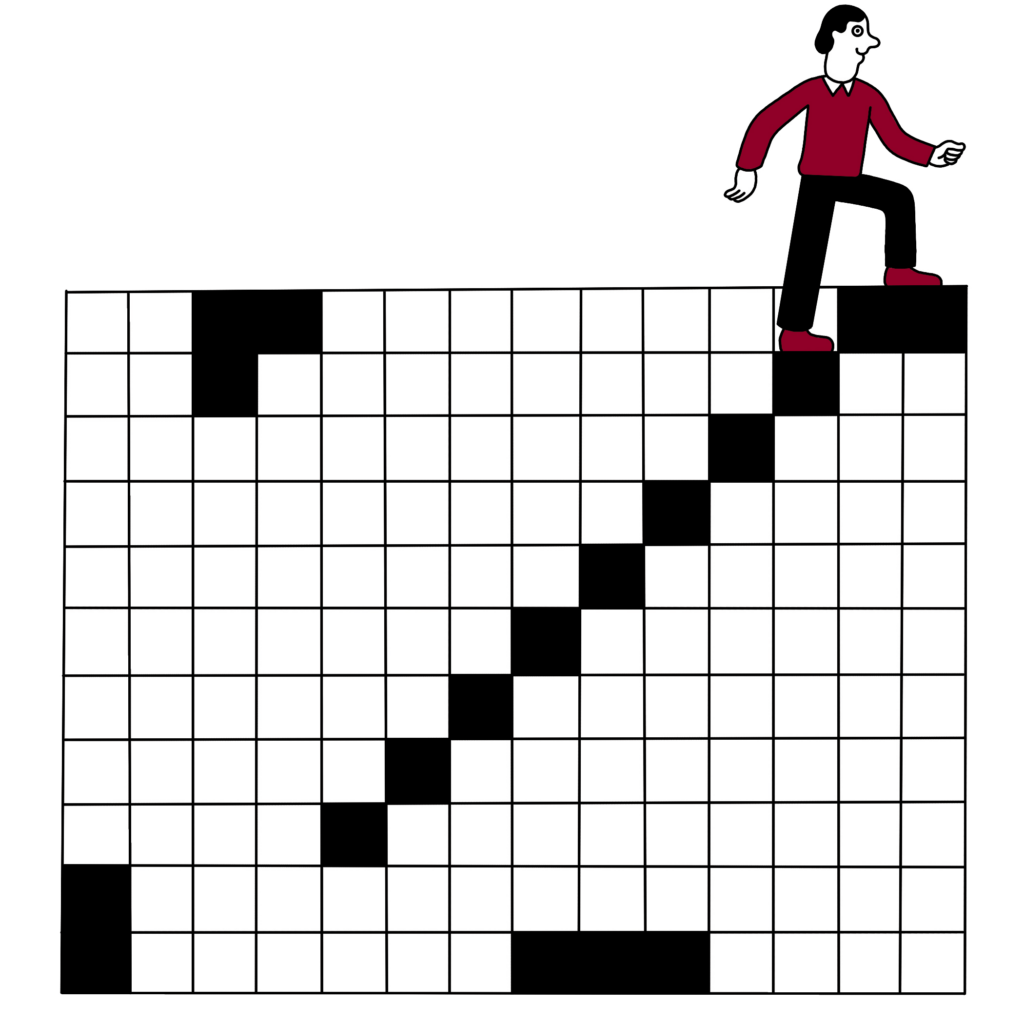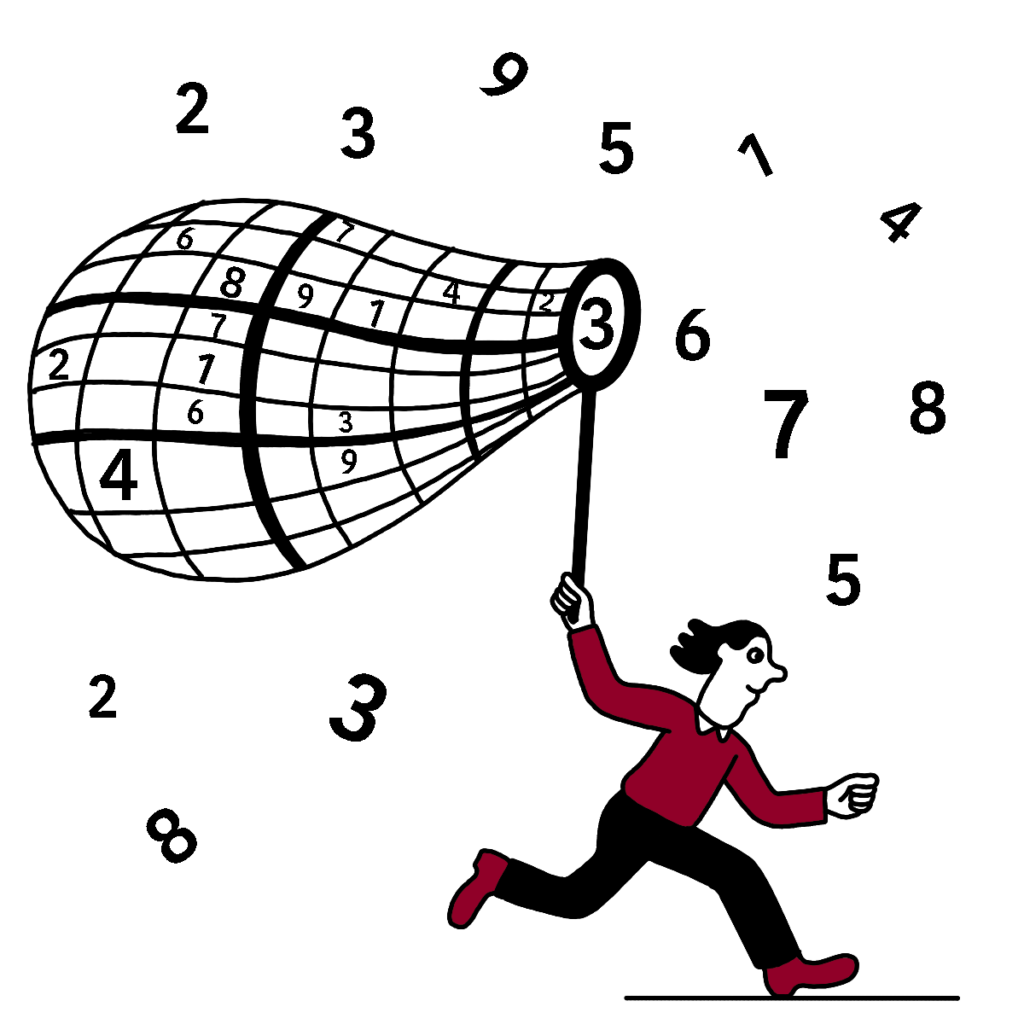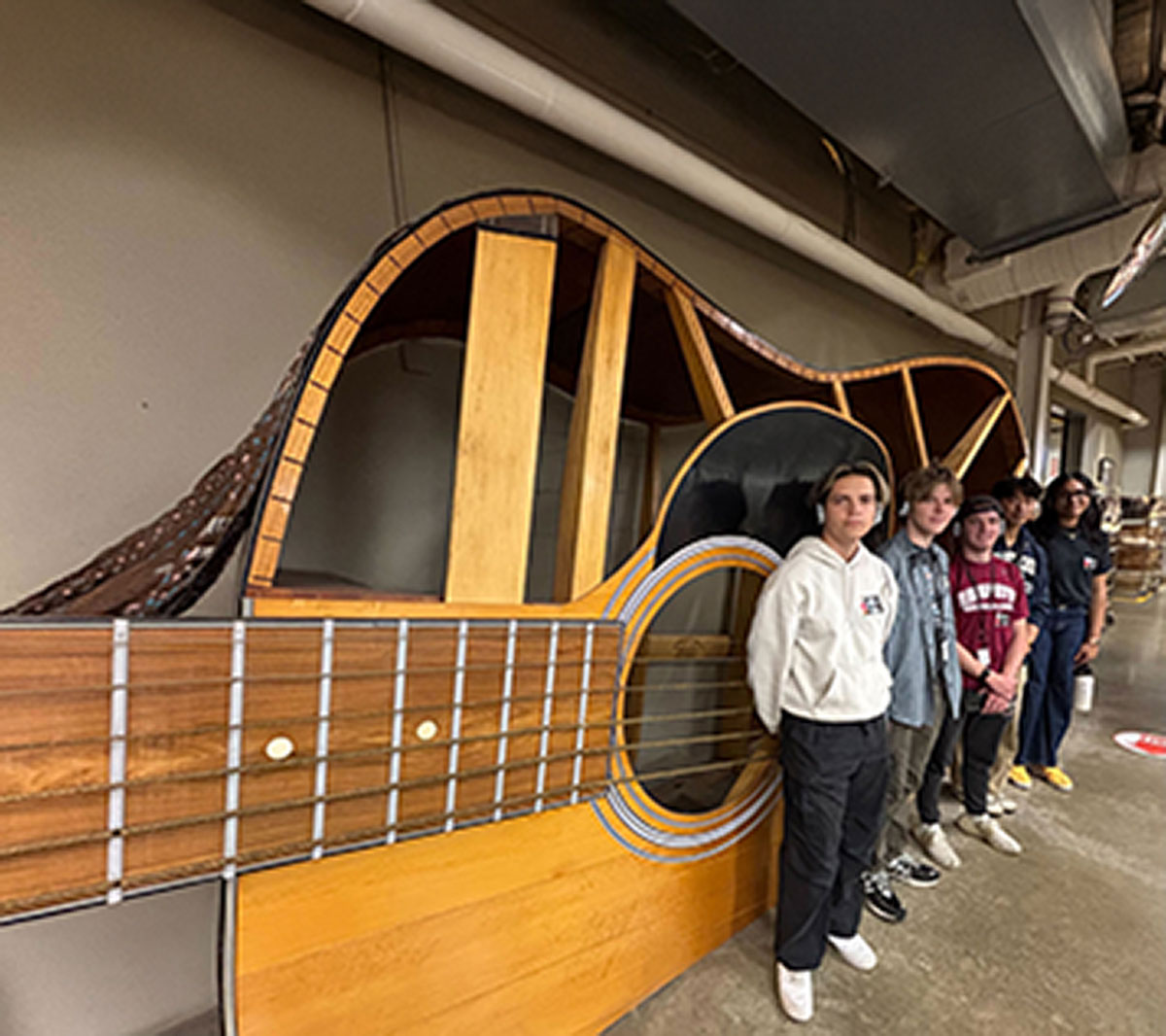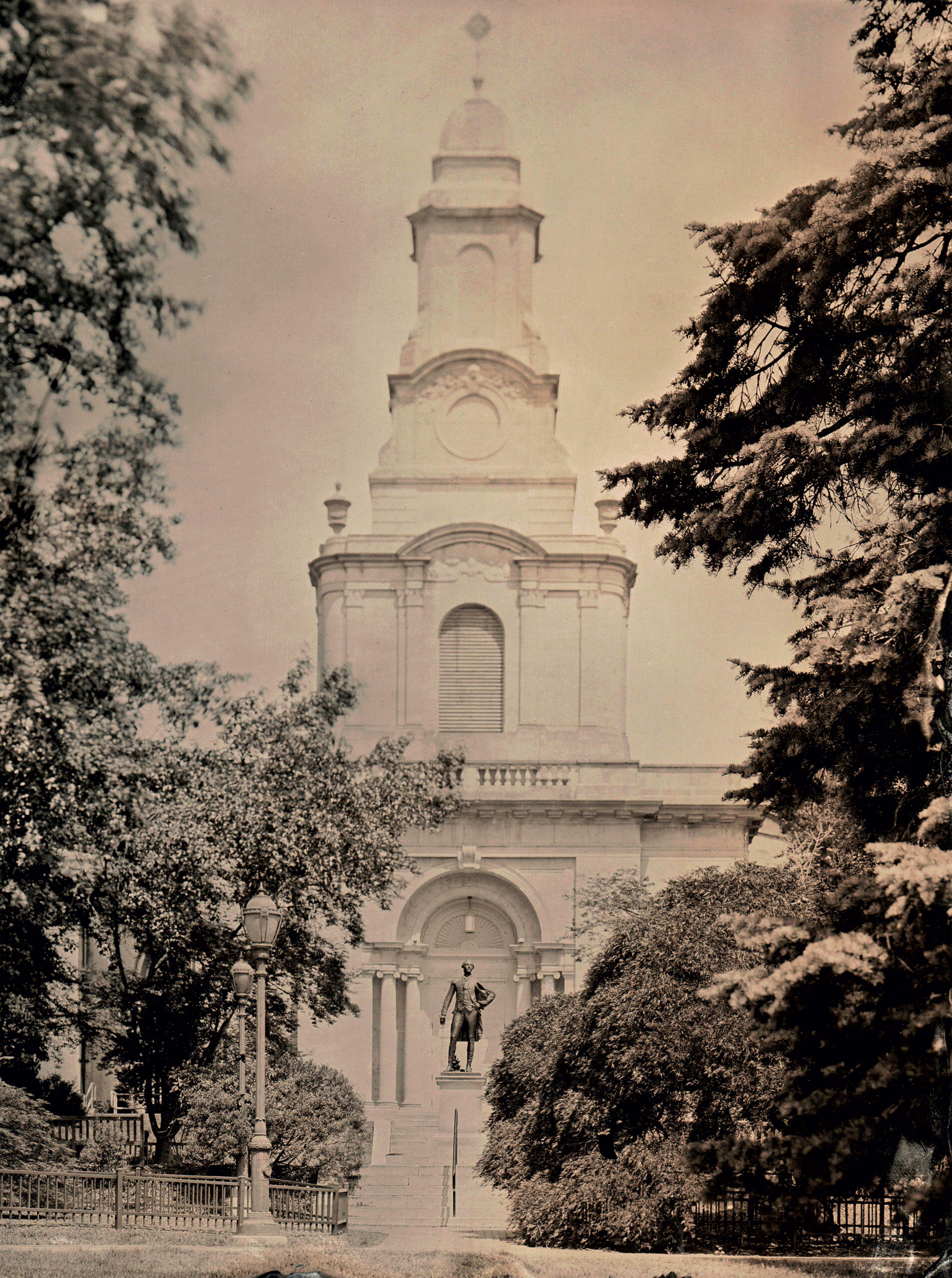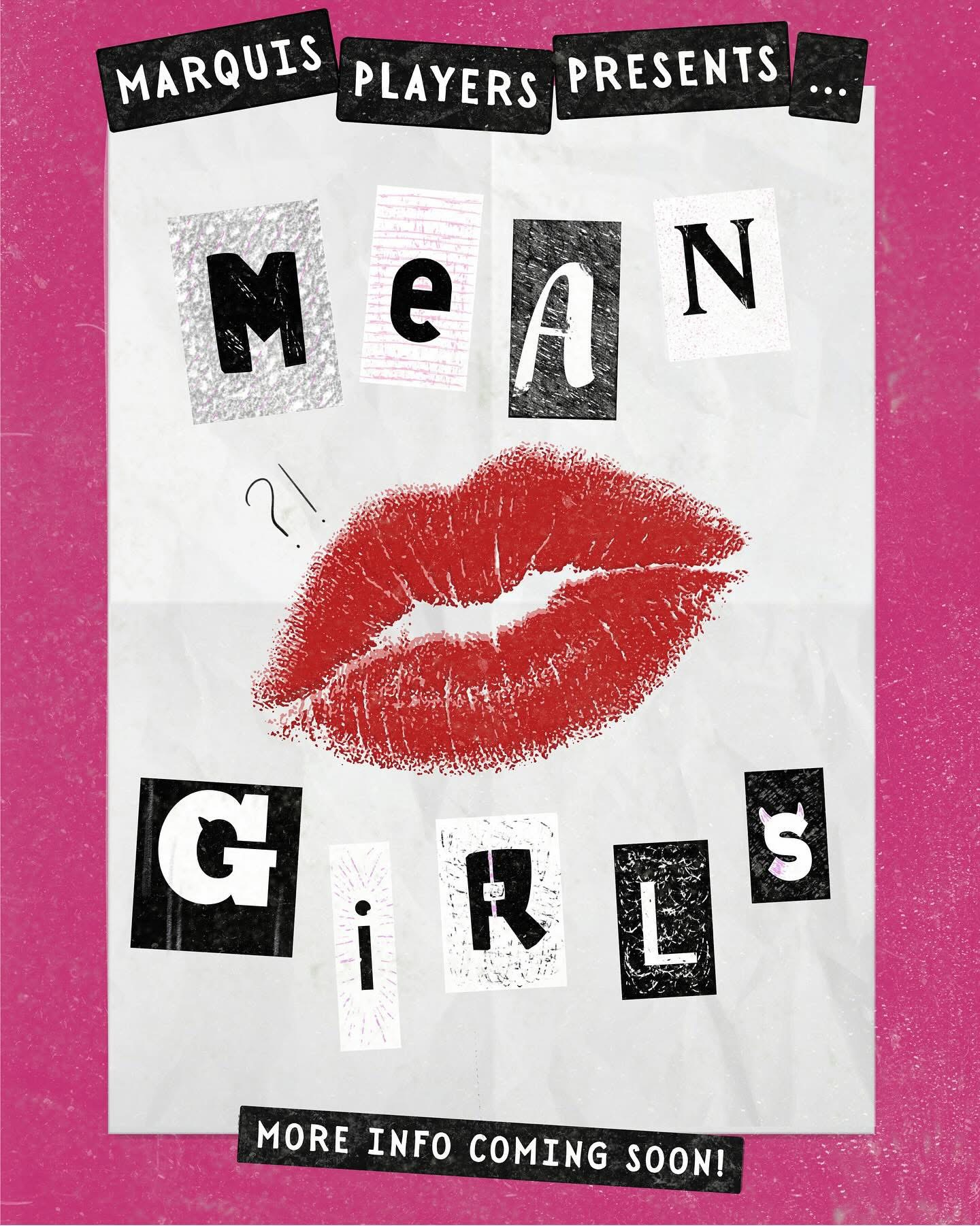Boosting brain teasers
Get clued in to your puzzling potential, thanks to Rachel Garland ’22.
If you’ve ever grabbed a book of puzzles to pass the time, Rachel Garland ’22 might have had a hand in crafting the clues. As a puzzle editor at Kappa Publishing Group in Blue Bell, Pa., Garland spends her days working out the finer details of the company’s games with a focus on crossword puzzles.
The bulk of her role is editing and modernizing clues from their database, including ensuring the references are suited to a contemporary audience. The company recently entered the custom license space and now works on content with partners like Disney.
Garland, who loves puzzles of all kinds, believes the best crosswords are the ones with consistent themes, giving them structure and references that, however difficult, make sense to the reader.
“It’s frustrating for me and for a lot of other people when it feels like there’s no chance to figure something out because you just haven’t heard of it,” she says. “People think of crosswords as esoteric or as having weird references, and that’s definitely true sometimes, but the best crosswords are ones made with attention to what’s relevant at the time.”
Want to improve your puzzle game? Here are Garland’s expert tips.
Move on from clues that stump you.
Rather than spending too much time on tricky clues, Garland recommends bypassing the ones that give you trouble.
“Especially on your first time through, if you’re stuck, just move on,” she says. “Fill in some more letters, and maybe it will make it easier.”
Her preferred technique when moving through a crossword is to take it one section at a time—rather than go through all of the “across” clues followed by those in the “down” portion, focus on filling in as many letters as possible in a particular portion of the puzzle.
Look out for “crossword-ese.”
According to Garland, there are clues that repeat because of their convenient length and common letters. Unexpected celebrities like actor Omar Epps and artist/singer Yoko Ono make frequent appearances, as well as acronyms and abbreviations for government agencies.
“One way to get better at crosswords is to do a lot of them, and you’ll start to pick up on patterns and things that recur,” she says.
Find the threads.
Even if a puzzle doesn’t have an explicit theme, there may be ways to narrow down the type of references you can look for.
“If a puzzle references a movie that came out in 2024, you can probably expect to see other contemporary references as well,” she says. “If it’s referencing older things, you don’t have to focus on things that just came out.”
Have fun with it.
Garland hopes people remember that puzzles are supposed to be fun. And, whether it’s the Saturday crossword in The New York Times or a quick try at Wordle, Garland says puzzling is a healthy habit.
“If you do a puzzle every day, even one of the simpler ones, it’s good for you to use your brain in that way,” she says. “Social media is such easy content—you don’t have to think too hard to consume it. Doing something like a puzzle will push you.”

